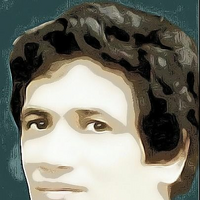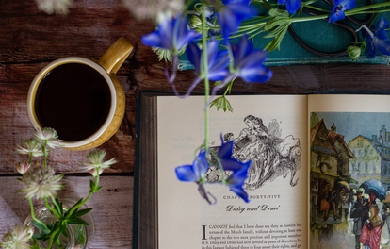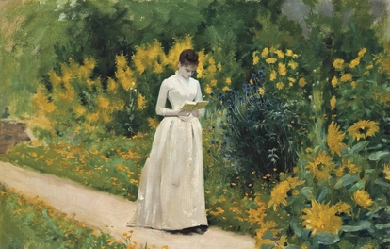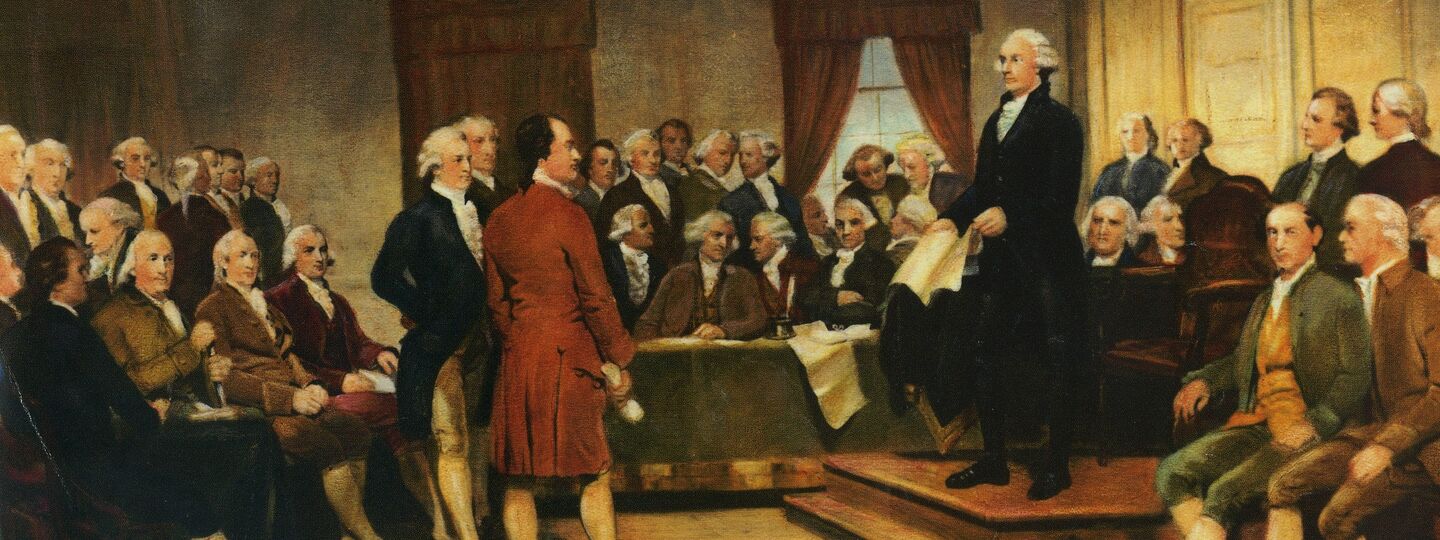
Info
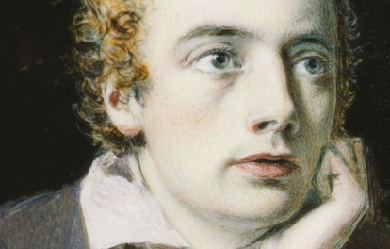
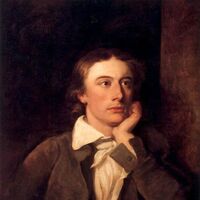
English Romantic poet John Keats was born on October 31, 1795, in London. The oldest of four children, he lost both his parents at a young age. His father, a livery-stable keeper, died when Keats was eight; his mother died of tuberculosis six years later. After his mother's death, Keats's maternal grandmother appointed two London merchants, Richard Abbey and John Rowland Sandell, as guardians. Abbey, a prosperous tea broker, assumed the bulk of this responsibility, while Sandell played only a minor role. When Keats was fifteen, Abbey withdrew him from the Clarke School, Enfield, to apprentice with an apothecary-surgeon and study medicine in a London hospital. In 1816 Keats became a licensed apothecary, but he never practiced his profession, deciding instead to write poetry.
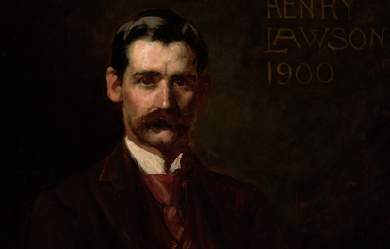
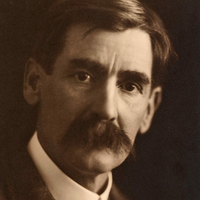
Henry Archibald Hertzberg Lawson (17 June 1867 – 2 September 1922) was an Australian writer and poet. Along with his contemporary Banjo Paterson, Lawson is among the best-known Australian poets and fiction writers of the colonial period and is often called Australia's “greatest short story writer”. He was the son of the poet, publisher and feminist Louisa Lawson.
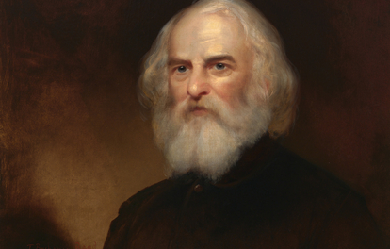
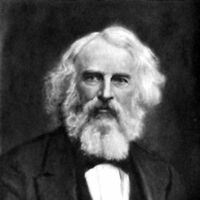
Henry Wadsworth Longfellow (February 27, 1807 – March 24, 1882) was an American poet and educator whose works include "Paul Revere's Ride", The Song of Hiawatha, and Evangeline. He was also the first American to translate Dante Alighieri's The Divine Comedy and was one of the five Fireside Poets. Longfellow was born in Portland, Maine, then part of Massachusetts, and studied at Bowdoin College. After spending time in Europe he became a professor at Bowdoin and, later, at Harvard College. His first major poetry collections were Voices of the Night (1839) and Ballads and Other Poems (1841). Longfellow retired from teaching in 1854 to focus on his writing, living the remainder of his life in Cambridge, Massachusetts, in a former headquarters of George Washington. His first wife, Mary Potter, died in 1835 after a miscarriage. His second wife, Frances Appleton, died in 1861 after sustaining burns from her dress catching fire. After her death, Longfellow had difficulty writing poetry for a time and focused on his translation. He died in 1882.
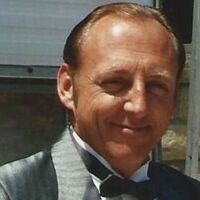
Worked in Manufacturing for 45 years. I am now a retired Tool&Die Maker. I am married with two grown children. I write poems, short stories, and some children's stories. I have published Poems in Quarterlies across the US in the 1980's, some awards and honorable mentions. My stories and some poems are now published on Booksie.com --- Author names = D. Thurmond --- & --- JE Falcon.
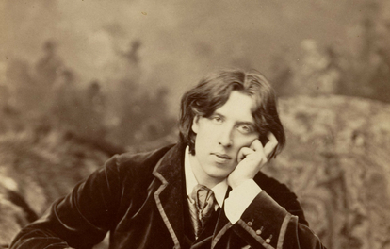
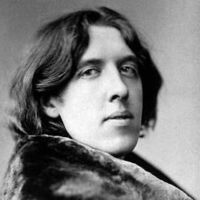
Oscar Fingal O'Flahertie Wills Wilde (16 October 1854 – 30 November 1900) was an Irish writer and poet. After writing in different forms throughout the 1880s, he became one of London's most popular playwrights in the early 1890s. Today he is remembered for his epigrams, plays and the circumstances of his imprisonment, followed by his early death. At the turn of the 1890s, he refined his ideas about the supremacy of art in a series of dialogues and essays, and incorporated themes of decadence, duplicity, and beauty into his only novel, The Picture of Dorian Gray (1890). The opportunity to construct aesthetic details precisely, and combine them with larger social themes, drew Wilde to write drama. He wrote Salome (1891) in French in Paris but it was refused a licence. Unperturbed, Wilde produced four society comedies in the early 1890s, which made him one of the most successful playwrights of late Victorian London.
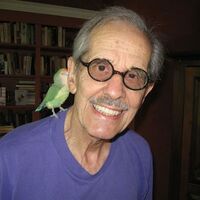
I was born in Hamilton, Ohio, in 1925, a confession that I am an old geezer. I served in the infantry during World War II, was wounded and discharged in 1946. I then obtained a B.A. degree with honors in English in 1949. Subsequently I taught in Cincinnati public schools and at the University of Cincinnati for the next 35 years. My poetry has appeared in: * Wall Street Journal * Hellas * Lyric * Envoi * Midwest Poetry Review (a sonnet won awards) * Aethlon * Light * Poet's View * Classical Outlook * Mind over Matter Several books have been self-published but Wormwood and Whines, a compilation of many of my poems, was published by Superior Books in 1999.
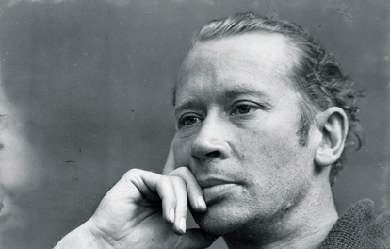
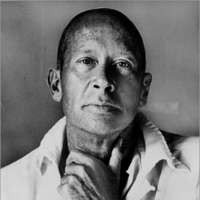
Edward Estlin Cummings (October 14, 1894 – September 3, 1962), popularly known as E. E. Cummings, with the abbreviated form of his name often written by others in lowercase letters as e.e. cummings (in the style of some of his poems—see name and capitalization, below), was an American poet, painter, essayist, author, and playwright. His body of work encompasses approximately 2,900 poems, two autobiographical novels, four plays and several essays, as well as numerous drawings and paintings. He is remembered as a preeminent voice of 20th century poetry.
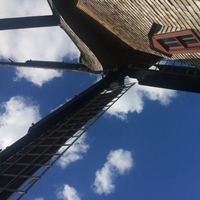
Hello. My name is Mike. I'm a 30something turning 102 this year. I'm the father to an amazing little girl who I'm unable to see as much as I would like, because I was unable to save her from a lifetime of pain. On this page you'll hear me drone on about topics such as this, being a victim of partners and parents with personality disorders, OCD, PTSD, suicidal ideation, and the occasional nonsensical poem about a snail or a garden gnome. There are horrible people in the world, and many of them are inescapable, and most of you would not believe the chaotic hell my life has led me through. But I have always tried to be the sort of person who I wish others would be. It's so much harder to be a bad person than a good person. Given the issues in my life, I might suffer hazards that would prevent me from furthering this message, so let me attempt to do so here. Be a good person. Know that nothing you do will ever change the world, and that all the help you give to others will ultimately be pointless. But that shouldn't stop you from trying to be the best person you can be. Live as altruistically and conscientiously towards others as possible. Hold open doors, be humble, apologize, offer help. If you see someone in need, don't wait for someone else to come along, because they might not. If you see a need, fill a need. Treat others with kindness and fairness, empathy and equity. If you hurt someone, find out how you can prevent yourself from doing so again in the future. Let people in when you're driving, spare some change to panhandlers, defend kids and animals when you see they're in trouble. The meaning of life is progress. Without growth, there can only be decay. It's too late for humanity as a species, but if everyone reading this could just try a little harder, maybe life wouldn't have to be so unfair. I want to take the time to thank those who follow me directly, as well as those who view my poems in passing. It does not go undetected or unappreciated, truly. Thank you for your support. I hope you all find whatever you’re looking for.
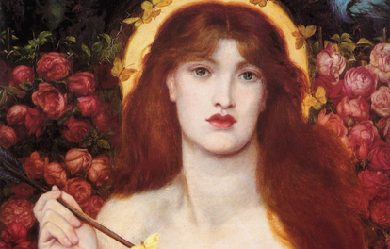
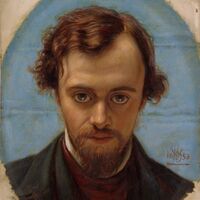
Dante Gabriel Rossetti (12 May 1828 – 9 April 1882) was an English poet, illustrator, painter and translator. He founded the Pre-Raphaelite Brotherhood in 1848 with William Holman Hunt and John Everett Millais, and was later to be the main inspiration for a second generation of artists and writers influenced by the movement, most notably William Morris and Edward Burne-Jones. His work also influenced the European Symbolists and was a major precursor of the Aesthetic movement.
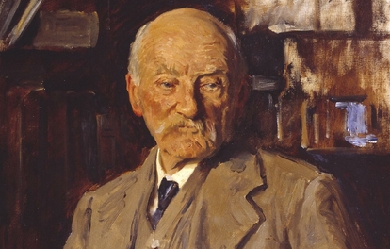
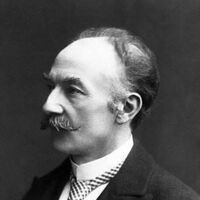
Thomas Hardy (2 June 1840 – 11 January 1928) was an English novelist and poet. While his works typically belong to the Naturalism movement, several poems display elements of the previous Romantic and Enlightenment periods of literature, such as his fascination with the supernatural. While he regarded himself primarily as a poet who composed novels mainly for financial gain, he became and continues to be widely regarded for his novels, such as Tess of the d'Urbervilles and Far from the Madding Crowd. Hardy's poetry, first published in his fifties, has come to be as well regarded as his novels and has had a significant influence over modern English poetry, especially after The Movement poets of the 1950s and 1960s cited Hardy as a major figure.
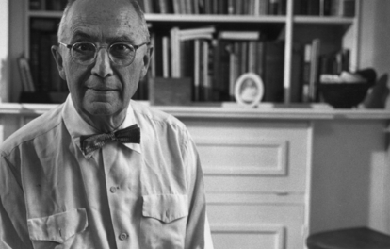
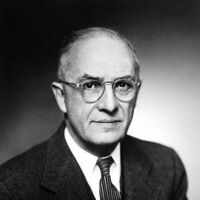
William Carlos Williams (September 17, 1883 – March 4, 1963) was an American poet closely associated with modernism and Imagism. He was also a pediatrician and general practitioner of medicine with a medical degree from the University of Pennsylvania School of Medicine. Williams "worked harder at being a writer than he did at being a physician" but excelled at both. Although his primary occupation was as a family doctor, Williams had a successful literary career as a poet. In addition to poetry (his main literary focus), he occasionally wrote short stories, plays, novels, essays, and translations. He practiced medicine by day and wrote at night. Early in his career, he briefly became involved in the Imagist movement through his friendships with Ezra Pound and H.D. (also known as Hilda Doolittle, another well-known poet whom he befriended while attending the University of Pennsylvania), but soon he began to develop opinions that differed from those of his poet/friends.

I started dabbling at age 13, and after a while, I was writing full poems, however, I only have poetry from when I was 16 and up. I am now 28, and I have found that it is so much easier to say things through poetry than it is to verbalize them. I draw inspiration for my poetry from writers, musicians, movies, daily interactions, my faith, and much more. As far as writers go, when I was younger I got introduced to Langston Hughes, and I have learned to take from his style of writing. I also enjoy some good old Shakespeare every once in a while. Most of my influence, however, comes from music; I draw my influence from genres that include but are not limited to, hip-hop, folk, rock, and country. Another thing that really impacts my poetry are events that have taken place in my life. Movie characters and themes also have a chance to have their fair share of influence in my poetry. I am a Christ-follower first and foremost, so, beneath most of my poems stories, there is a spiritual undertone. My plainly faith-based poems, however, are a written (hard) memory of the headspace that I was in at that time in my life. People can create all sorts of art without having to fabricate who they are, and without compromising who they are as a person; it's being able to take from other peoples experiences and write about them, based on the writer's interpretation, that can set a writer apart from others. I write mainly Free Verse poetry, because to me poetry is a lot of self-expression, and if I were to follow the set guidelines of a certain type of poetry, I would then be forfeiting my creative license. Sometimes, however, I like to take from certain styles of poetry, especially when I am trying to convey a particular emotion, for example, I not only write Free Verse but, I also have learned to take from styles, such as Blank Verse & Limericks. I have a friend who said this, "If there is one thing I have learned about writing over the years it is that the best work comes from writing without the audience in mind." I find this quote to be accurate for not only my writing but for writing in general. Love y'all!
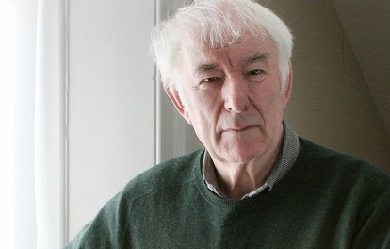
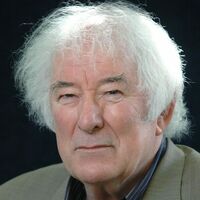
Seamus Justin Heaney (13 April 1939 – 30 August 2013) was an Irish poet, playwright and translator. He received the 1995 Nobel Prize in Literature. Among his best-known works is Death of a Naturalist (1966), his first major published volume. Heaney was and is still recognised as one of the principal contributors to poetry in Ireland during his lifetime. American poet Robert Lowell described him as “the most important Irish poet since Yeats”, and many others, including the academic John Sutherland, have said that he was “the greatest poet of our age”. Robert Pinsky has stated that “with his wonderful gift of eye and ear Heaney has the gift of the story-teller.” Upon his death in 2013, The Independent described him as “probably the best-known poet in the world”.
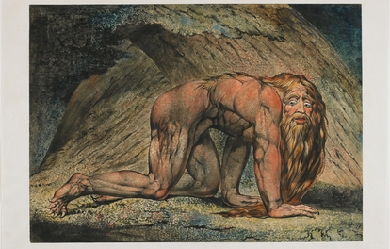
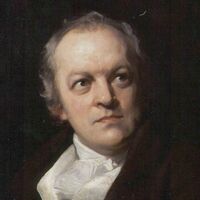
William Blake (28 November 1757 – 12 August 1827) was an English poet, painter, and printmaker. Largely unrecognised during his lifetime, Blake is now considered a seminal figure in the history of both the poetry and visual arts of the Romantic Age. His prophetic poetry has been said to form “what is in proportion to its merits the least read body of poetry in the English language”. His visual artistry has led one contemporary art critic to proclaim him “far and away the greatest artist Britain has ever produced”. Although he lived in London his entire life except for three years spent in Felpham he produced a diverse and symbolically rich corpus, which embraced the imagination as “the body of God”, or “Human existence itself”.
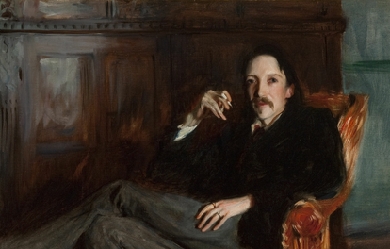
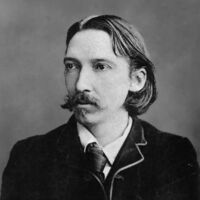
Robert Louis Balfour Stevenson (13 November 1850 – 3 December 1894) was a Scottish novelist, poet, essayist and travel writer. His best-known books include Treasure Island, Kidnapped, and Strange Case of Dr Jekyll and Mr Hyde. A literary celebrity during his lifetime, Stevenson now ranks among the 26 most translated authors in the world. He has been greatly admired by many authors, including Jorge Luis Borges, Ernest Hemingway, Rudyard Kipling, Marcel Schwob, Vladimir Nabokov, J. M. Barrie, and G. K. Chesterton, who said of him that he “seemed to pick the right word up on the point of his pen, like a man playing spillikins”.

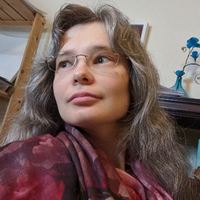
I was born with verse in my blood. I was raised with poetry mixed in with my mother's milk. We were immersed in poetry from our school days; we were taught to read it, appreciate it, glean wisdom from it, knew all the poets of old by heart...Ironcally, in my culture, writing poetry is the high art and privilege of men seasoned by age and gifted by Creator with this rare talent; it was not for the young to 'fool around' with, so we were not taught or encouraged to express ourselves through verse. So I never knew I had it... It was in my young adulthood that I started to feel the Song of the heart stirring in me. A friend shared with me his poetry, showed me that we all have the capability, if only we tune into ourselves and listen. The first few tentative poems were born from under my pen. Then life happened, I tuned out, forgot that part of myself, shut the door on it for more than a decade. I do not know what prompted for my Song to resurface, one day it just started pouring out of me, but I am grateful for the reawakening of that part of my soul that I'd given up for lost, as well as for the people around me who fuel my inspiration. Whether intentionally or not, they keep the fire burning. An enormous Thank You to all of you for reading, commenting, sharing and inspiring. This is a wonderful and nurturing community for all aspiring poets. Prose is the language of the mind, poetry is the language of the soul.
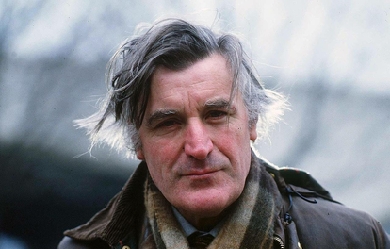
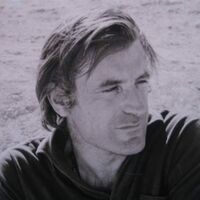
Edward James (Ted) Hughes was born in Mytholmroyd, in the West Riding district of Yorkshire, on August 17, 1930. His childhood was quiet and dominately rural. When he was seven years old, his family moved to the small town of Mexborough in South Yorkshire, and the landscape of the moors of that area informed his poetry throughout his life. Hughes graduated from Cambridge in 1954. A few years later, in 1956, he co-founded the literary magazine St. Botolph’s Review with a handful of other editors. At the launch party for the magazine, he met Sylvia Plath. A few short months later, on June 16, 1956, they were married.
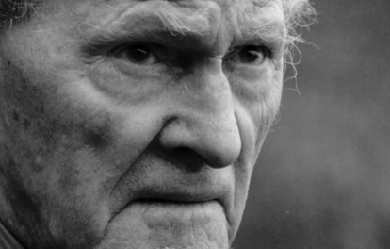
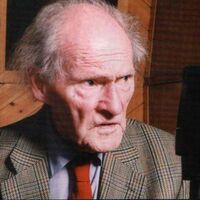
Ronald Stuart Thomas (29 March 1913 – 25 September 2000), published as R. S. Thomas, was a Welsh poet and Anglican priest who was noted for his nationalism, spirituality and deep dislike of the anglicisation of Wales. In 1955, John Betjeman, in his introduction to the first collection of Thomas’s poetry to be produced by a major publisher, Song at the Year's Turning, predicted that Thomas would be remembered long after Betjeman himself was forgotten. M. Wynn Thomas said: "He was the Aleksandr Solzhenitsyn of Wales because he was such a troubler of the Welsh conscience. He was one of the major English language and European poets of the 20th century." R. S. Thomas was born in Cardiff, the only child of Thomas Hubert and Margaret (née Davis). The family moved to Holyhead in 1918 because of his father's work in the merchant navy. He was awarded a bursary in 1932 to study at Bangor University, where he read Classics. In 1936, having completed his theological training at St. Michael's College, Llandaff, he was ordained as a priest in the Church in Wales. From 1936 to 1940 he was the curate of Chirk, Denbighshire, where he met his future wife, Mildred (Elsi) Eldridge, an English artist. He subsequently became curate at Tallarn Green, Flintshire. Thomas and Mildred were married in 1940 and remained together until her death in 1991. Their son, Gwydion, was born 29 August 1945. The Thomas family lived on a tiny income and lacked the comforts of modern life, largely by the Thomas's choice. One of the few household amenities the family ever owned, a vacuum cleaner, was rejected because Thomas decided it was too noisy. For twelve years, from 1942 to 1954, Thomas was rector at Manafon, near Welshpool in rural Montgomeryshire. It was during his time at Manafon that he first began to study Welsh and that he published his first three volumes of poetry, The Stones of the Field, An Acre of Land and The Minister. Thomas' poetry achieved a breakthrough with the publication of his fourth book Song at the Year's Turning, in effect a collected edition of his first three volumes, which was critically very well received and opened with Betjeman's famous introduction. His position was also helped by winning the Royal Society of Literature's Heinemann Award. Thomas learnt the Welsh language at age 30, too late in life, he said, to be able to write poetry in it. The 1960s saw him working in a predominantly Welsh speaking community and he later wrote two prose works in Welsh, Neb (English: Nobody), an ironic and revealing autobiography written in the third person, and Blwyddyn yn Llŷn (English: A Year in Llŷn). In 1964 he won the Queen's Gold Medal for Poetry. From 1967 to 1978 he was vicar at St Hywyn's Church (built 1137) in Aberdaron at the western tip of the Llŷn Peninsula. Thomas retired from church ministry in 1978 and he and his wife relocated to Y Rhiw, in "a tiny, unheated cottage in one of the most beautiful parts of Wales, where, however, the temperature sometimes dipped below freezing", according to Theodore Dalrymple. Free from the constraints of the church he was able to become more political and active in the campaigns that were important to him. He became a fierce advocate of Welsh nationalism, although he never supported Plaid Cymru because he believed they did not go far enough in their opposition to England. In 1996 Thomas was nominated for the Nobel Prize for Literature (the winner that year was Seamus Heaney). Thomas died on 25 September 2000, aged 87, at his home at Pentrefelin near Criccieth. He had been ill with heart trouble and had been treated at Gwynnedd hospital until two weeks before he died. After his death an event celebrating his life and poetry was held in Westminster Abbey with readings from Heaney, Andrew Motion, Gillian Clarke and John Burnside. Thomas's ashes are buried close to the door of St. John's Church, Porthmadog, Gwynedd. Beliefs Thomas believed in what he called "the true Wales of my imagination", a Welsh-speaking, aboriginal community that was in tune with the natural world. He viewed western (specifically English) materialism and greed, represented in the poetry by his mythical "Machine", as the destroyers of community. He could tolerate neither the English who bought up Wales and, in his view, stripped it of its wild and essential nature, nor the Welsh whom he saw as all too eager to kowtow to English money and influence. This may help explain why Thomas was an ardent supporter of CND and described himself as a pacifist but also why he supported the Meibion Glyndŵr fire-bombings of English-owned holiday cottages in rural Wales. On this subject he said in 1998, "what is one death against the death of the whole Welsh nation?" He was also active in wildlife preservation and worked with the RSPB and Welsh volunteer organisations for the preservation of the Red Kite. He resigned his RSPB membership over their plans to introduce non-native kites to Wales. Thomas's son, Gwydion, a resident of Thailand, recalls his father's sermons, in which he would "drone on" to absurd lengths about the evil of refrigerators, washing machines, televisions and other modern devices. Thomas preached that they were all part of the temptation of scrambling after gadgets rather than attending to more spiritual needs. "It was the Machine, you see", Gwydion Thomas explained to a biographer. "This to a congregation that didn’t have any of these things and were longing for them." Although he may have taken some ideas to extreme lengths, Theodore Dalrymple wrote, Thomas "was raising a deep and unanswered question: What is life for? Is it simply to consume more and more, and divert ourselves with ever more elaborate entertainments and gadgetry? What will this do to our souls?" Although he was a cleric, he was not always charitable and was known for being awkward and taciturn. Some critics have interpreted photographs of him as indicating he was "formidable, bad-tempered, and apparently humorless." Works Almost all of Thomas's work concerns the Welsh landscape and the Welsh people, themes with both political and spiritual subtext. His views on the position of the Welsh people, as a conquered people are never far below the surface. As a cleric, his religious views are also present in his works. His earlier works focus on the personal stories of his parishioners, the farm labourers and working men and their wives, challenging the cosy view of the traditional pastoral poem with harsh and vivid descriptions of rural lives. The beauty of the landscape, although ever-present, is never suggested as a compensation for the low pay or monotonous conditions of farm work. This direct view of "country life" comes as a challenge to many English writers writing on similar subjects and challenging the more pastoral works of such as contemporary poets as Dylan Thomas. Thomas's later works were of a more metaphysical nature, more experimental in their style and focusing more overtly on his spirituality. Laboratories of the Spirit (1975) gives, in its title, a hint at this development and also reveals Thomas's increasing experiments with scientific metaphor. He described this shift as an investigation into the "adult geometry of the mind".} Fearing that poetry was becoming a dying art, inaccessible to those who most needed it, "he attempted to make spiritually minded poems relevant within, and relevant to, a science-minded, post-industrial world", to represent that world both in form and in content even as he rejected its machinations. Despite his nationalism Thomas could be hard on his fellow countrymen. Often his works read as more of a criticism of Welshness than a celebration. He himself said there is a "lack of love for human beings" in his poetry. Other critics have not been so harsh. Al Alvarez said: "He was wonderful, very pure, very bitter but the bitterness was beautifully and very sparely rendered. He was completely authoritative, a very, very fine poet, completely off on his own, out of the loop but a real individual. It's not about being a major or minor poet. It's about getting a work absolutely right by your own standards and he did that wonderfully well." Thomas's final works commonly sold 20,000 copies in Britain alone. Books * The Stones of the Field (1946) * An Acre of Land (1952) * The Minister (1953) * Song at the Year's Turning (1955) * Poetry for Supper (1958) * Tares, [Corn-weed] (1961) * The Bread of Truth (1963) * Words and the Poet (1964, lecture) * Pietà (1966) * Not That He Brought Flowers (1968) * H'm (1972) * What is a Welshman? (1974) * Laboratories of the Spirit (1975) * Abercuawg (1976, lecture) * The Way of It (1977) * Frequencies (1978) * Between Here and Now (1981) * Ingrowing Thoughts (1985) * Neb (1985) in Welsh, autobiography, written in the third person * Experimenting with an Amen (1986) * Welsh Airs (1987) * The Echoes Return Slow (1988) * Counterpoint (1990) * Blwyddyn yn Llŷn (1990) in Welsh * Pe Medrwn Yr Iaith : ac ysgrifau eraill ed. Tony Brown & Bedwyr L. Jones, essays in Welsh (1990) * Mass for Hard Times (1992) * No Truce with the Furies (1995) * Autobiographies (1997, collection of prose writings) * Residues (2002, posthumously) References Wikipedia - http://en.wikipedia.org/wiki/R._S._Thomas
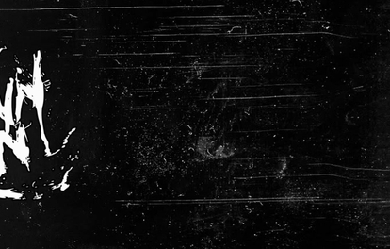
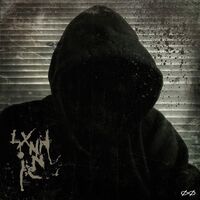
Lonnie Rutledge is a prolific artist, songwriter, and poet from the United States. He is known for his peculiar methods, intense concepts, experimental writing and often demented production. He has described his style as 'Schizodelic'; a term he is noted for coining in the mid 1990's. Lxnnnie has released many albums under assorted aliases in multiple genres of music. He has had songs featured in major motion pictures, produced music for a number of commercials, designed album covers and published a book of poetry.

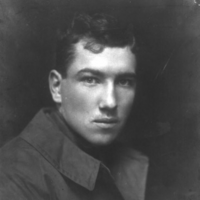
On July 24, 1895, Robert Graves was born in Wimbledon, near London. His father, Alfred Perceval Graves, was a Gaelic scholar and minor Irish poet. His mother, Amalie von Ranke Graves, was a relation of Leopold von Ranke, one of the founding fathers of modern historical studies. One of ten children, Robert was greatly influenced by his mother's puritanical beliefs and his father's love of Celtic poetry and myth. As a young man, he was more interested in boxing and mountain climbing than studying, although poetry later sustained him through a turbulent adolescence. In 1913 Graves won a scholarship to continue his studies at St. John's College, Oxford, but in August 1914 he enlisted as a junior officer in the Royal Welch Fusiliers. He fought in the Battle of Loos and was injured in the Somme offensive in 1916. While convalescing, he published his first collection of poetry, Over the Brazier. By 1917, though still an active serviceman, Graves had published three volumes. In 1918, he spent a year in the trenches, where he was again severely wounded. In January 1918, at the age of twenty-two, he married eighteen-year-old Nancy Nicholson, with whom he was to have four children. Traumatized by the war, he went to Oxford with his wife and took a position at St. John's College. Graves's early volumes of poetry, like those of his contemporaries, deal with natural beauty and bucolic pleasures, and with the consequences of the First World War. Over the Brazier and Fairies and Fusiliers earned for Graves the reputation as an accomplished war poet. After meeting the American poet and theorist Laura Riding in 1926, Graves's poetry underwent a significant transformation. Douglas Day has written that the "influence of Laura Riding is quite possibly the most important single element in [Graves's] poetic career: she persuaded him to curb his digressiveness and his rambling philosophizing and to concentrate instead on terse, ironic poems written on personal themes." In 1927, Graves and his first wife separated permanently, and in 1929 he published Goodbye to All That, an autobiography that announced his psychological accommodation with the residual horror of his war experiences. Shortly afterward, he departed to Majorca with Laura Riding. In addition to completing many books of verse while in Majorca, Graves also wrote several volumes of criticism, some in collaboration with Riding. The couple cofounded Seizin Press in 1928 and Epilogue, a semiannual magazine, in 1935. During that period, he evolved his theory of poetry as spiritually cathartic to both the poet and the reader. Although Graves claimed that he wrote novels only to earn money, it was through these that he attained status as a major writer in 1934, with the publication of the historical novel I, Claudius, and its sequel, Claudius the God and His Wife Messalina. (During the 1970's, the BBC adapted the novels into an internationally popular television series.) At the onset of the Spanish Civil War in 1936, Graves and Riding fled Majorca, eventually settling in America. In 1939, Laura Riding left Graves for the writer Schuyler Jackson; one year later Graves began a relationship with Beryl Hodge that was to last until his death. It was in the 1940s, after his break with Riding, that Graves formulated his personal mythology of the White Goddess. Inspired by late nineteenth-century studies of matriarchal societies and goddess cults, this mythology was to pervade all of his later work. After World War II, Graves returned to Majorca, where he lived with Hodge and continued to write. By the 1950s, Graves had won an enormous international reputation as a poet, novelist, literary scholar, and translator. In 1962, W. H. Auden went as far as to assert that Graves was England's "greatest living poet." In 1968, he received the Queen's Gold Medal for Poetry. During his lifetime he published more than 140 books, including fifty-five collections of poetry (he reworked his Collected Poems repeatedly during his career), fifteen novels, ten translations, and forty works of nonfiction, autobiography, and literary essays. From 1961 to 1966, Graves returned to England to serve as a professor of poetry at Oxford. In the 1970s his productivity fell off; and the last decade of his life was lost in silence and senility. Robert Graves died in Majorca in 1985, at the age of ninety. Poetry * Over the Brazier (1916) * Goliath and David (1917) * Fairies and Fusiliers (1918) * Treasure Box (1920) * Country Sentiment (1920) * The Pier-Glass (1921) * Whipperginny (1923) * To Whom Else? Deyá (1931) * The Poems of Robert Graves (1958) * Man Does, Woman Is (1964) * Love Respelt (1966) * Poems About Love (1969) * Love Respelt Again (1969) * Poems: Abridged for Dolls and Princes (1971) * Poems 1970-1972 (1973) * New Collected Poems (1977) * The Complete Poems, ed. Beryl Graves and Dunstan Ward (2000) References Poets.org - www.poets.org/poet.php/prmPID/193


Born and raised in Soweto. God, my family and sports and music are the most important things in my life. I started writing poems as a hobby and then developed a greater liking for it. The poems I write are based on the emotions I feel at that time, but also sometimes they are inspired by music & movies. I write poetry to entertain and inspire other people to better themselves and that through them, they will learn & most importantly, know how strong and mighty God is.


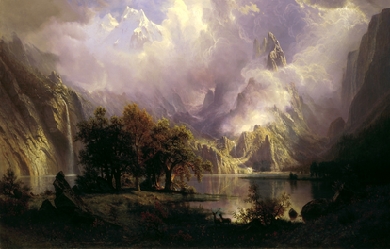

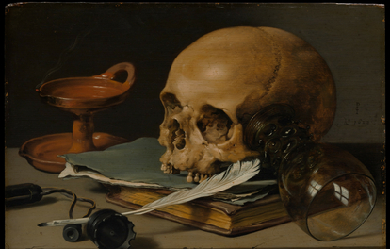
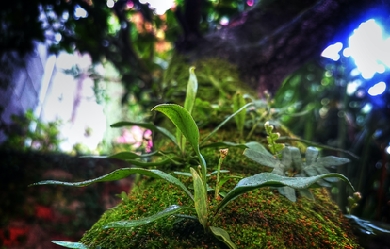
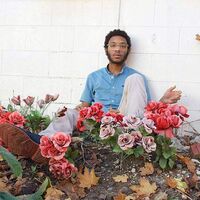


.jpg)
